
FAST FACTS Vol. 1, Issue 4 – 1978 Chevy Trucks – A Best Seller!
From 1978 thru 1983 saw Chevy sell over 1,310,000 models of this very popular, comfortable, and rugged truck. Engine options in 1978 for Chevy trucks
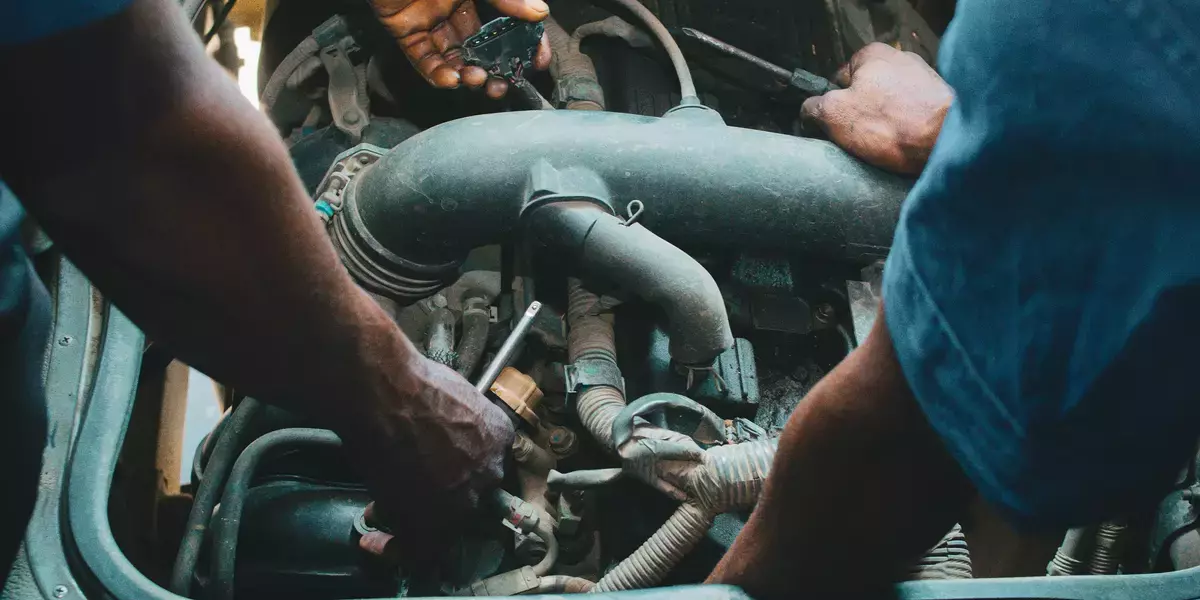
Proper engine service and maintenance are essential for the longevity and optimal performance of your Ford 3.8L engine. Regular upkeep ensures your engine runs smoothly, providing reliable power for miles. In this comprehensive guide, we will explore key aspects of proper engine maintenance, including choosing the right fuel and oil, utilizing Rislone Performance Chemicals, conducting essential checks, and recognizing signs that your engine may need a tune-up. Let’s dive into engine care and learn how to keep your FORD 3.8L engine in top-notch condition.
Related Article: Performance Tuning For Ford Engines
Knowing the fuel requirements of your Ford 3.8L engine is essential for achieving optimal performance and prolonging its lifespan. Here’s a comprehensive guide to understanding your engine’s fuel needs:
The first step in determining the right fuel for your Ford 3.8L engine is to consult the vehicle’s owner’s manual. It will provide specific information on the recommended fuel type and octane rating.
Many Ford 3.8L engines are designed to run on regular unleaded gasoline, typically with an octane rating of 87. Regular fuel is the most common and cost-effective option for everyday driving.
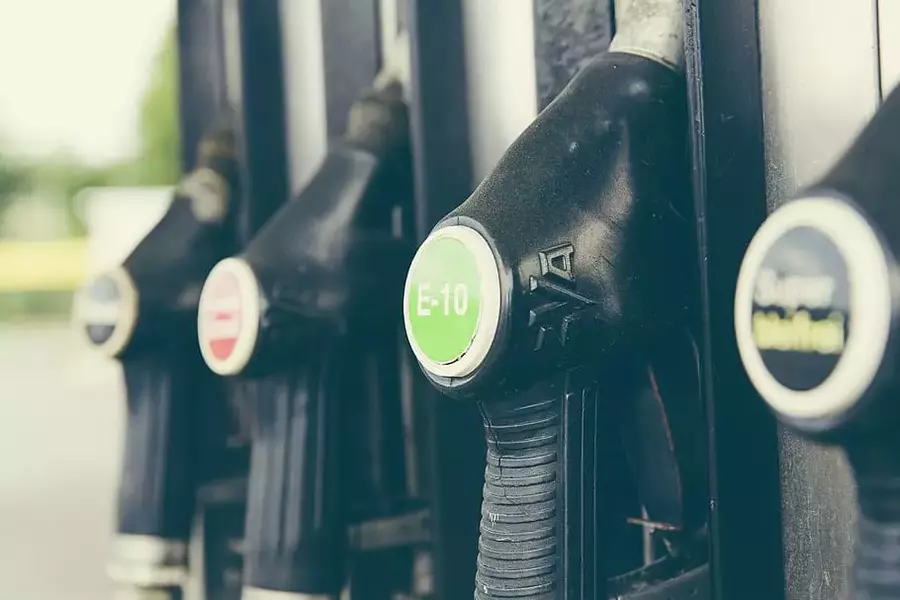
Some high-performance versions of the Ford 3.8L engine may require premium gasoline with a higher octane rating, usually 91 or 93. Premium fuel offers better resistance to engine knocking and may be necessary for engines with higher compression ratios.
In some models, the Ford 3.8L engine is equipped with flex-fuel capability, meaning it can run on either regular gasoline or E85, a blend of 85% ethanol and 15% gasoline. If your vehicle has this feature, it will be indicated in the owner’s manual.
Using fuel with an octane rating lower than what is recommended can lead to engine knocking, which is a knocking or pinging noise during combustion. This can cause engine damage and reduced performance.
Using the correct fuel type allows the engine to operate at its intended efficiency, providing better fuel economy and reduced emissions.

Using the recommended fuel ensures that your Ford 3.8L engine meets emission standards set by regulatory authorities, contributing to a cleaner environment.
Unless specifically recommended by the manufacturer, avoid using aftermarket fuel additives. Modern fuels already contain additives designed to keep your engine clean and your engine running more smoothly.
Knowing the fuel requirements of your Ford 3.8L engine and using the correct fuel type with the appropriate octane rating is crucial for maintaining optimal performance, fuel efficiency, and emission compliance. You can ensure a long-lasting and smooth-running engine by adhering to the guidelines in your owner’s manual and avoiding improper fuel usage.
Regular engine maintenance is vital for the proper functioning and longevity of your Ford 3.8L engine. Here are the key components of a comprehensive engine maintenance routine:
Regularly changing the engine oil is one of the most critical engine maintenance tips and tasks. Fresh engine oil lubricates the moving parts, reduces friction, and removes contaminants, ensuring optimal engine performance and longevity.
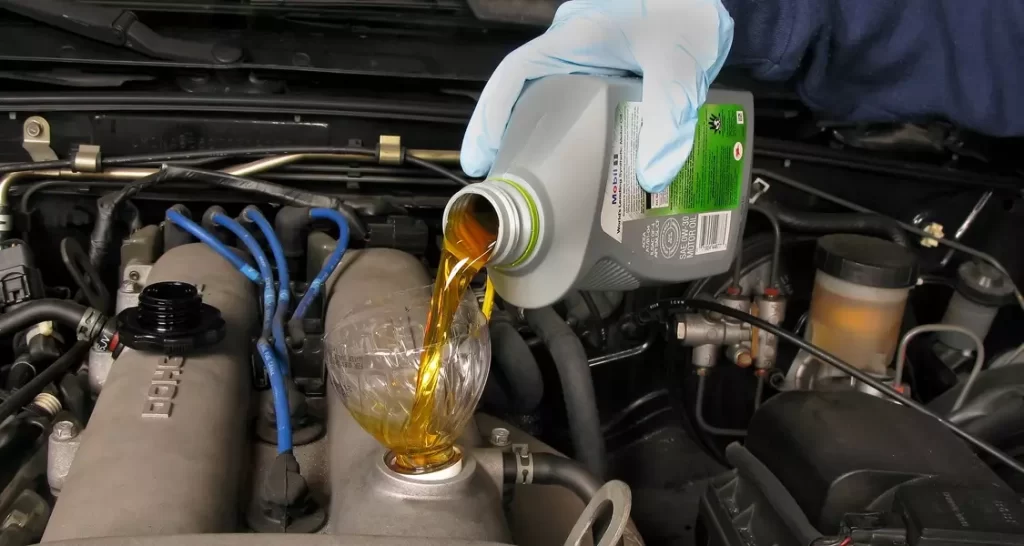
The air filter prevents dust, dirt, and debris from entering the engine. Regularly replacing the air filter ensures that the engine receives clean air, improving fuel efficiency and reducing engine wear.
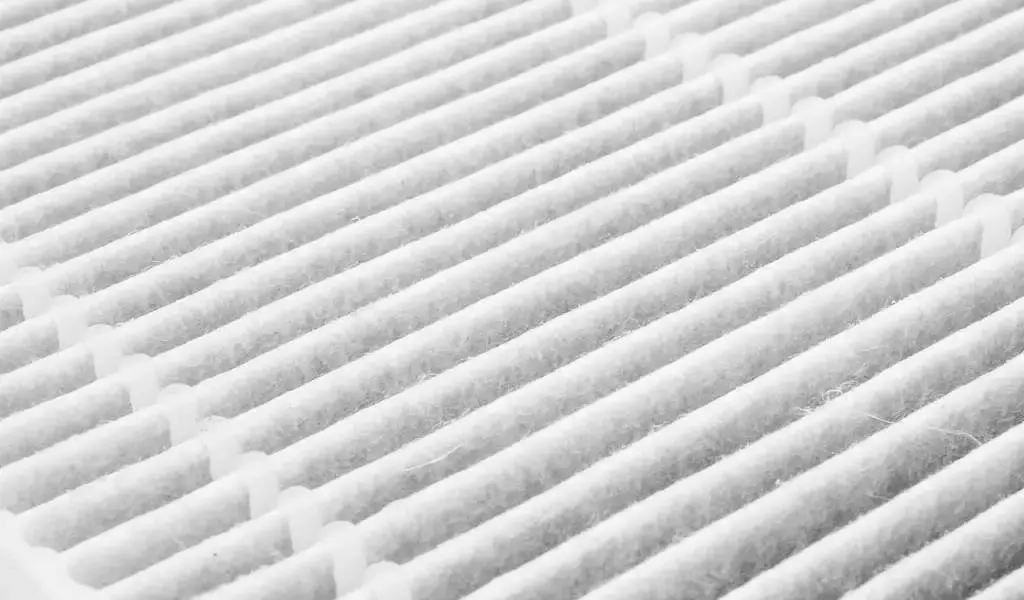
Spark plugs ignite the air-fuel mixture in the engine’s cylinders. Regular inspection and replacement of worn-out spark plugs help maintain smooth engine operation and optimal fuel efficiency.
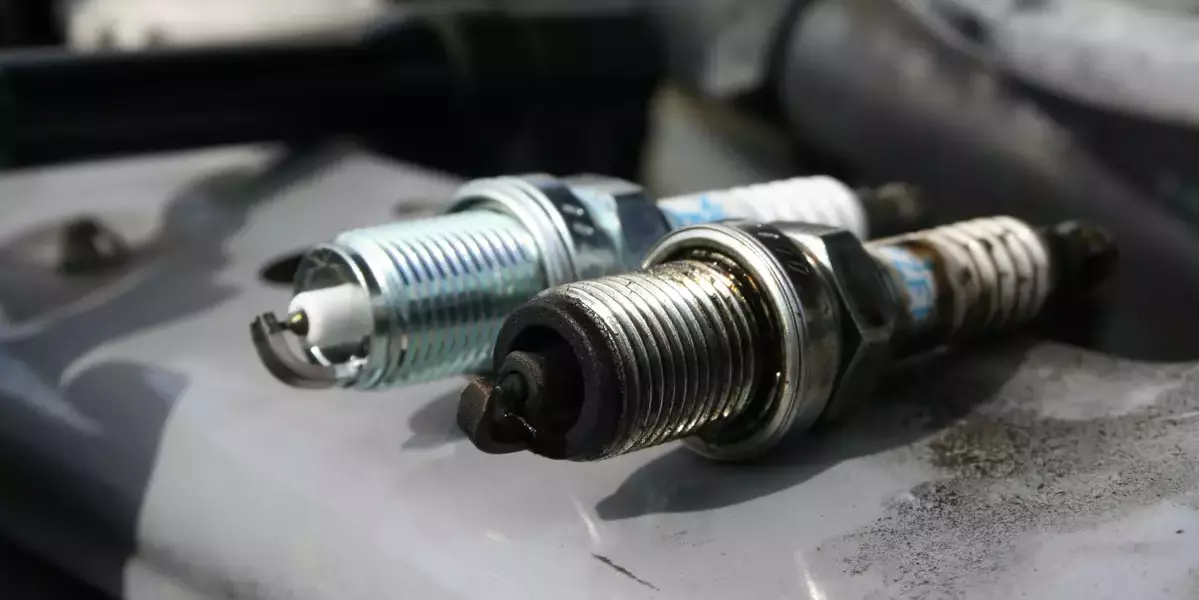
Aidan Wojtas, CC BY-SA 2.0 <https://creativecommons.org/licenses/by-sa/2.0>, via Wikimedia Commons
The engine coolant helps regulate the engine’s temperature and prevents overheating. Periodic coolant flushes remove old and degraded coolant, ensuring efficient cooling and protecting the engine from damage.
Belts and hoses play crucial roles in the engine’s operation, such as driving the alternator, water pump, and power steering. Regularly inspecting and replacing worn or damaged belts and hoses helps prevent unexpected breakdowns and costly repairs.
If your Ford 3.8L engine is equipped with a timing belt, following the manufacturer’s recommended replacement interval is essential. A failing timing belt can lead to severe engine damage.
The fuel filter keeps contaminants from the fuel pump from reaching the fuel injectors. Regularly replacing the fuel filter ensures proper fuel delivery, improving engine performance and fuel efficiency.
A healthy battery is crucial for starting the car engine and powering various electrical components. Inspecting the battery and its connections helps prevent starting issues and electrical problems.
For vehicles with automatic transmissions, checking and replacing the transmission fluid according to the manufacturer’s schedule is essential for smooth gear shifts and transmission longevity.
Regularly inspecting the exhaust system helps identify leaks, rust, or damage that could affect engine performance and emissions.

Keeping the emission system in good condition, including the catalytic converter and oxygen sensors, is essential for meeting environmental regulations and ensuring efficient engine operation.
Following a comprehensive engine maintenance routine and adhering to the manufacturer’s recommended schedule, you can enjoy a reliable and well-performing Ford 3.8L engine for years while avoiding costly repairs and potential engine issues.
Selecting the right engine oil is vital for the performance and longevity of your Ford 3.8L engine. Consult your vehicle’s manual for the recommended oil viscosity and quality standards. Regularly changing the engine oil and using the correct type ensures proper lubrication and protects engine components from wear and friction.
Maintaining a healthy Ford 3.8L engine goes beyond regular maintenance. Adopting simple practices can make a significant difference in its performance and longevity. Here are some valuable maintenance tips, to keep your engine in excellent condition:
Avoid Aggressive Driving
Gentle driving habits can go a long way in preserving your engine’s health. Avoid rapid acceleration, harsh braking, and unnecessary revving, as these actions put additional stress on the engine components and may lead to premature wear and tear.
Warm Up Your Engine
Allowing your engine to warm up before driving is essential, especially during colder weather. This gives the engine oil time to circulate and reach all critical engine parts, ensuring proper lubrication and reducing friction during start-up.
Avoid Excessive Idling
Idling for extended periods can waste fuel and strain the engine unnecessarily. If you anticipate being parked for over a minute or two, consider turning off the engine to conserve fuel and reduce emissions.
Use the Right Fuel
Always use the recommended fuel type and octane rating for your Ford 3.8L engine, as specified in the owner’s manual. Using the correct fuel ensures efficient combustion and prevents engine knocking or performance issues.
Regularly Check Fluid Levels
Keeping an eye on engine oil, coolant, transmission fluid, and other essential fluids is vital for engine health. Low fluid levels can lead to engine damage, so check them regularly and top up as needed.
Drive Responsibly on Rough Roads
Potholes, rough roads, and other road hazards can cause damage to your vehicle’s suspension and engine components. Drive cautiously and avoid hitting bumps at high speeds to protect your car and engine from unnecessary stress.
Timely Repairs
Address any engine-related issues promptly. A qualified mechanic should investigate strange noises, warning lights, or unusual smells to prevent potential problems from escalating.
Keep the Air Conditioning in Check
If your vehicle’s engine struggles to perform when the air conditioning is on, have it inspected by a professional. A full engine temperature or failing A/C compressor can put undue strain on the engine, affecting overall performance.
Quality Engine Oil
Opt for high-quality engine oil that meets the manufacturer’s specifications. Quality motor oil that offers better protection against wear and provides improved lubrication for your engine.
Maintain a Healthy Cooling System
Regularly inspect the radiator, cooling hoses, and coolant levels. A well-maintained cooling system prevents overheating, which can cause severe engine damage.
By implementing these practical tips and caring for your Ford 3.8L engine, you can ensure optimal performance, fuel efficiency, and reliability for a smoother and more enjoyable driving experience. Remember, small actions add up to significant benefits in the long run.
Recognizing when your Ford 3.8L engine requires a tune-up is crucial for maintaining its optimal performance. Here are key signs that indicate your engine may need a tune-up:
Rough Idling
If your engine idles roughly, producing vibrations or uneven RPMs when the vehicle is stationary, it could be a sign of ignition or fuel system issues that require attention.
Decreased Fuel Efficiency
A noticeable drop in fuel efficiency, where you find yourself refueling more frequently than usual for the same mileage, can indicate engine inefficiency or fuel system problems.
Poor Acceleration
If your Ford 3.8L engine struggles to accelerate smoothly or takes longer to reach desired speeds, it may be due to ignition, fuel, or air delivery problems.
Engine Misfires
Engine misfires occur when one or more cylinders fail to ignite the fuel at the right time. This can result in jerky acceleration, rough running, and a decrease in power and performance.
Persistent Check Engine Light
If the check engine light on your dashboard remains illuminated, it indicates that the engine’s onboard diagnostic system has detected a problem. It’s essential to have the engine codes scanned by a professional technician to pinpoint the issue accurately.
Unusual Engine Noises
Strange or unusual noises from the engine, such as knocking, pinging, or rattling, should never be ignored. These sounds could be indicative of various problems that require immediate attention.
Reduced Power and Performance
A noticeable decline in engine power, performance, or responsiveness can be attributed to various factors, including faulty sensors, ignition components, or clogged filters.
Difficulty Starting
If your Ford 3.8L engine experiences difficulty starting, it may be due to issues with the ignition system, fuel delivery, or battery health.
Vibrations or Poor Engine Balance
Excessive engine vibrations or a sense of imbalance while driving could be related to worn-out engine mounts or internal issues that warrant a tune-up.
Poor Emission Performance
Failed emissions tests or excessive smoke from the exhaust are signs that your car’s engine is not operating efficiently and may require tuning.
If you notice any of these signs, it’s essential to have your Ford 3.8L engine inspected by a qualified technician. A comprehensive tune-up can identify and address underlying issues, ensuring your engine operates optimally and preventing potentially costly repairs down the road. Regular tune-ups enhance engine performance and contribute to better fuel efficiency and reduced emissions, providing a smoother and more enjoyable driving experience.
Fraser Engines stands as a reputable and trusted provider of remanufactured engines, offering a reliable solution for those seeking quality engine replacements for their Ford 3.8L and other vehicle models. With a strong commitment to excellence and customer satisfaction, Fraser Engines has built a reputation for delivering remanufactured engines that meet or exceed OEM standards. Each engine undergoes a rigorous rebuilding process, utilizing high-quality components and advanced technology to ensure optimal performance and durability.
Backed by a comprehensive warranty, Fraser Engines instills confidence in their customers, providing peace of mind and assurance in the quality of their products. When it comes to engine replacements, Fraser Engines is a go-to source for exceptional products and top-notch service, making them a preferred choice for drivers seeking reliable and cost-effective solutions for their Ford 3.8L+ engine repair needs.

From 1978 thru 1983 saw Chevy sell over 1,310,000 models of this very popular, comfortable, and rugged truck. Engine options in 1978 for Chevy trucks

The Ford Bronco, an iconic name in the automotive world, has embarked on a remarkable journey since its inception in the mid-1960s. This rugged, versatile

The movie that burrowed into our TVs and never left! 30 years old and you’ll still love watching this campy horror-comedy! Directed by a young

In this article series, we’re going to talk about the heart and soul of Ford’s off-road dominance—their engines, with a special focus on the formidable

The 88-mile-per-hour stainless-steel hero of the Back To The Future movies How a movie franchise single-handedly etched DeLorean into the history book of cool cars

1977 Pontiac Trans Am ENGINE SPECS for the “Screaming Chicken” Car: 6.6 Liter, V8 water-cooled, cast-iron block and heads, 5 main bearings Displacement: 400 cubic-inches